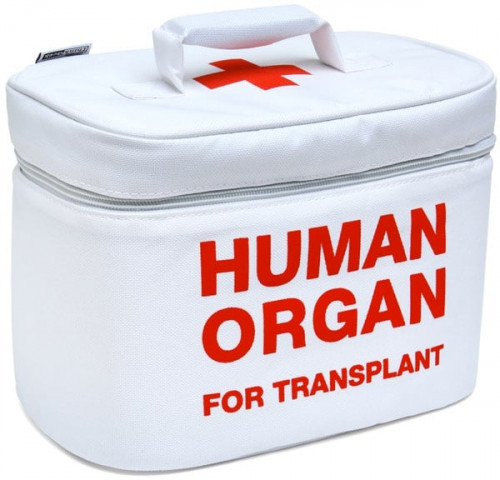Make your own silver lining: Even in death, you can give new life to others
SIUT event aimed to raise awareness about organ donation.

"My 46-year-old father died of kidney failure because there was no Dr Adib Rizvi. I pledge to donate my organs," Actor Faryal Gohar. PHOTO: laughingsquid.com
The case of a 24-year-old student of Karachi University, Syed Naveed Anwar, is a source of inspiration for the young and old alike. He did not fill in a donor card nor did he visit any patient who was in need of an organ, before he met a fatal road accident in the last week of October 1998 in Karachi.

Naveed had shared his wish to donate his organs separately with his father, Syed Anwarul Haq, and three sisters, Fauzia, Shazia and Tahira. The wish was never discussed among the family members before the accident that occurred within a few months.
“Have you declared my son brain dead?” the sad father had asked the doctors of Liaquat National Hospital. “Yes, he is no longer among us,” a doctor had told him. The family was in shock when a female doctor advised them to go through with the organ donation process, asking them to contact the Sindh Institute of Urology and Transplantation (SIUT).
The scenes and dialogue among family members brought tears into the eyes of the participants who attended the launch of the docu-drama on Naveed - the first Pakistani deceased organ donor. Several renowned personalities, from all walks of life, attended the event at the SIUT on Wednesday. The event was a tribute to deceased organ donors and to create awareness about organ donation.
“We cannot forget the moment when we had to decide about our beloved brother’s organs,” recalled Naveed’s sister, Shazia. “Our relatives raised several objections but my father didn’t listen to anyone,” she added.
Naveed’s kidneys and eyes were donated to four different patients. One of the benefactors who was donated his eye, frequently visits Naveed’s father and sisters. “I feel my son’s presence in your eyes,” the dialogue in the documentary made the audience emotional.
Over 150,000 patients die in Pakistan every year due to organ failure. These include 25,000 people who need kidneys, 50,000 in need of liver, 10,000 heart patients, 2,000 in need of pancreas and 1,386 who require lungs. “We can save them by donating our organs,” said SIUT’s director Prof Adibul Hasan Rizvi. “Other Muslim countries are using similar procedures to save lives.”
Prof Rizvi briefly explained how yesterday’s myth had become today’s reality, saying that the practice of donating organs was common in developed countries. “There are thousands of people who died because of the absence of donors and there are thousands who still await them,” he said.
He went on to explain how the process of donating organs is conducted. Prof Rizvi proudly stated that the SIUT had earned a reputation for itself and was recognised across the world.
“My 46-year-old father died of kidney failure because there was no Dr Adib Rizvi,” wept actress, Faryal Gohar. “I pledge to donate my organs,” she announced.
Media persons, including Sultana Siddiqui, Hameed Haroon, Mujahid Barelvi, Zubeida Mustafa and others lauded the services of the SIUT on the occasion. Over half of the participants pledged to donate their organs and said they would spread the message among family and friends.
Published in The Express Tribune, April 25th, 2014.



















COMMENTS
Comments are moderated and generally will be posted if they are on-topic and not abusive.
For more information, please see our Comments FAQ